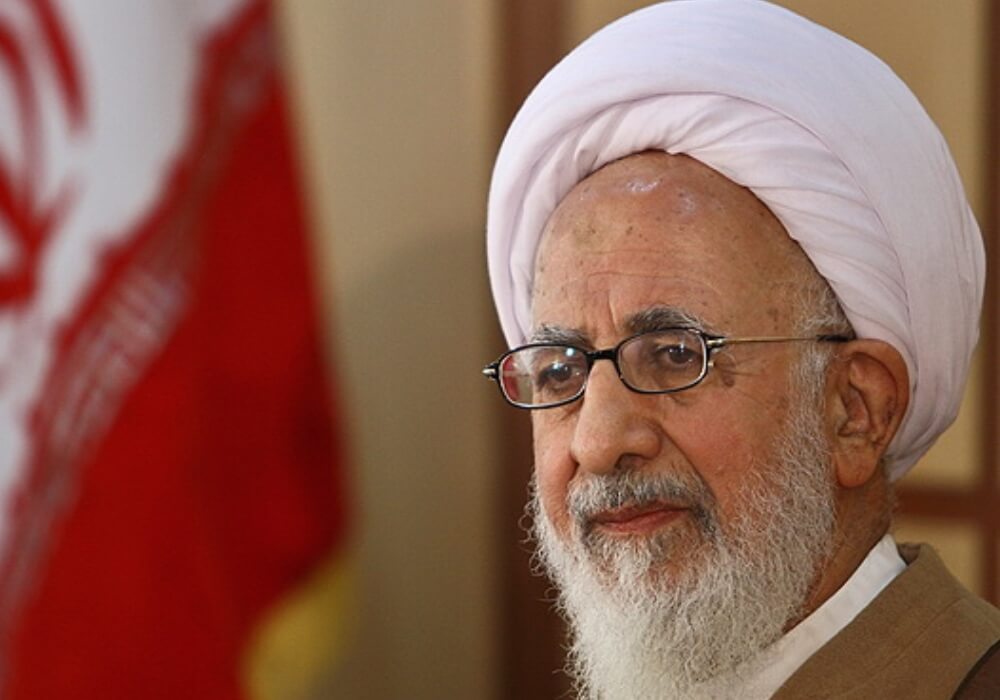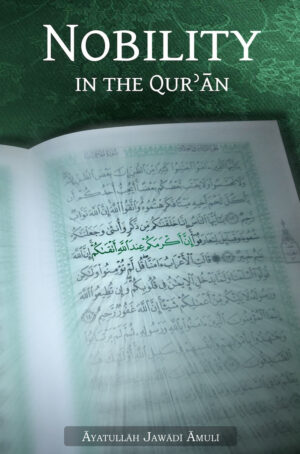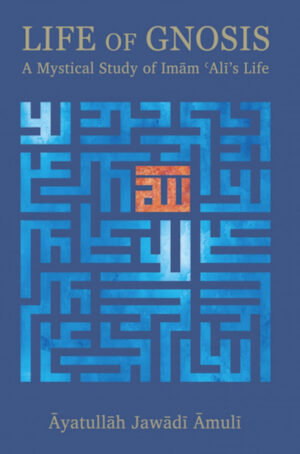A Short Biography of Āyatullāh Jawādī Āmulī
Āyatullāh Ḥājj Shaykh ‘Abdullah Jawādī Āmulī was born in 1933 in Āmul, Iran. His father, Mīrzā Abū al-Ḥasan Jawādī was an eminent scholar and a respected clergyman in the city as were his forefathers before him.AJM
After completing primary education in 1946, his desire to learn Islamic sciences and theology led him to take up studies in the Ḥawza of Āmul. In this Ḥawza he studied literature, and books such as Sharḥ-i Lum’ah, Sharāyi’, Shaykh Ṣadūq’s Amālī under the tutelage of such religious scholars as Āyatullāh Farsīw, Āyatullāh Gharawī, Shaykh ‘Azīzullāh Ṭabarsī, Aqā Ḍiā’ Āmulī, Shaykh Aḥmad I’timādī, Ḥājj Shaykh Abū al-Qāsim Rajā’ī, Shaykh Sha’bān Nūrī and his father Mīrzā Abū al-Ḥasan Jawādī.
Jawādī Āmulī migrated to Tehran in 1950 and continued his studies in the Marwi School under the supervision of Āyatullāh Ḥājj Shaykh Muḥammad Taqī Āmulī, where he was taught Rasā’il and Makāsib by scholars such as Shaykh Ismā’īl Jāpalqī, Ḥājj Sayyid ‘Abbās Fishārakī and Shaykh Muḥammad Riḍā Muḥaqiq-dāmād. He also benefited from Āyatullāh Sha’rānī’s lectures in hay’at, ṭabī’iyyāt of Ishārāt, parts of Asfār and the Sharḥ-i manẓūmah. With Āyatullāh Ilāhī Qumshihī’s he studied: Qur’ānic exegesis, parts of Sharḥ-i manẓūmah, the sections on theology and mysticism of the Ishārāt, and the section on the psyche of the Asfār. He covered the book Fuṣūṣ al-ḥikam with the master Fāḍil Tūnī and studied Khārij-i Fiqh and Uṣūl with Āyatullāh Muḥammad Taqī Āmulī.
In 1955, he was encouraged by Āyatullāh Muḥammad Taqī Āmulī to migrate to Qum in order to complete his Ḥawza studies. In Qum, he benefited from the grand Āyatullāh Burūjirdī’s Khārij-i-Fiqh lectures for a period of time, and continued the same with Āyatullāh Muḥaqiq-dāmād for over twelve years and Āyatullāh Mīrzā Hāshim Āmuli for almost five years. He attended Imam Khumaynī’s lectures in Khārij-i Uṣūl for seven years. Because of his strong attraction for both the intellectual and Qur’ānic sciences, from the early days of his residence in Qum he came under the tutelage of the great philosopher and mufassir of the Qur’ān, ‘Allāmah Ṭabāṭabā’ī, and remained so until the end of the latter’s life. With the ‘Allāmah he studied the sections of nafs and ma’ād of the Asfār, Khārij-i Asfār, ilāhiyyāt and burbān of the Shifā’, Tamhīd al-qawā’id, science of ḥadīth, tafsīr of the Qur’ān, the commentary of the poetry of Ḥāfiẓ, comparative philosophy, and the critique of profane philosophy.
After the completion of these studies, Jawādī Amulī continued in the tradition of the Ḥawza by proliferating knowledge by teaching and writing. He taught all the different sciences in their various levels. Some of the books that he has taught include: Ishārāt, Sharḥ-i tajrīd, Sharḥ-i manzūmah, Shawāhid al-rubūbiyyah, al-Taḥṣīl, Shifā’, all of the Asfār, Tamhīd al-qawā’id, Fuṣūṣ al-Ḥikam, Miṣbaḥ al-Uns, Khārij-i-Fiqh, and the tafsīr of the Qur’ān. Currently, he continues to teach the tafsīr of the Qur’ān, Khārij-i-Fiqh, and Fuṣūṣ al-ḥikam in the Ḥawza of Qum.
Āyatullāh Jawādī Āmulī has authored over one hundred volumes of books on subjects such as tafsīr of the Qur’ān, hagiography of the Prophet and his immaculate Progeny, philosophy, ‘irfān, theology, religious law, social rights, religious teachings, and traditions (ḥadīth).
In January 1989 Āyatullāh Jawādī Āmulī was chosen by Imam Khumaynī to deliver a historical message to Mikhail Gorbachev, the then president of the Soviet Union, in Moscow.
In August 2000 he travelled to the United Nations General Assembly building in New York for a Millennium World Peace Summit of Religious and Spiritual Leaders where he delivered the special message of the Supreme Leader, Āyatullāh Khamenei.
Books by Āyatullāh Jawādī Āmulī
Life of Gnosis – A mystical study of Imam Ali’s (a’) Life.
A seminal work on the nature of the mystical tradition is Islam – referred to as gnosticism here – the book in hand vividly illustrates the limitations of rational methods in apprehending reality as such. By exposing the vulnerability of all mediate forms of knowledge to error, the author underlines the supremacy of the immediate methods of direct vision and spiritual enlightenment. He then examines the life of Imam ‘Ali ibn Abi Talib (‘a), the spiritual authority par excellence after Prophet Muhammad (s), and shows how it was thoroughly imbued with gnosis – both in perspective as well as in practice.
The Secrets of Prayer
Secrets of Prayer“You may have heard of the difference between the secrets (sirr), underlying wisdom (ḥikmah), and etiquettes (adab) of an act. The secret of an act of worship, such as prayer, is that which refers to the realm of malakūt and even higher, i.e. that which is related to the inner and profound aspects of worship. However, the wisdom behind an act of worship consists of the objectives and outcomes that are expected of it, such as ascension, being freed from impatience, etc. Furthermore, the etiquettes of an act of worship, like prayer, are those issues that are related to the attributes and states of the performer of prayer, such as the presence of heart, humbleness of the body, perseverance in remembrance (dhikr) of God, maintaining one’s focus away from anyone but the One Worshipped, and other outward features that are necessary (e.g. clothes, place of worship, etc.). It should be apparent that these things are not secrets of prayer and that there is a difference between etiquettes and secrets of prayer.”
“The secret in common between bowing and prostration is submission and humility at the majesty of the Worshipped One, and their difference lies in the fact that prostration, because it is more lowly than bowing, is the symbol and incarnation of something that is nearer to God Almighty, as the more the servant becomes humble, the more likely it is for him to reach God. This is why there exist numerous narrations saying, ‘The servant is nearest to Allah Almighty when he is prostrating’.”
Hajj: The Spiritual Journey
Hajj The Spiritual Journey“Islam, from the perspective that it is a worldwide religion, continuously emphasises the two enduring principles of ‘universality’ and ‘continuity’; consequently, its teachings also need to be universal and a manifestation of continuity and universality. Islam consists of various principles and pillars, and one of these pillars is Ḥajj. As Imam Bāqir (‘a) is reported to have said: ‘Islam is established upon five pillars: Prayer, Zakah, Fasting, Ḥajj and Walayah’. Therefore, the one who deliberately evades Ḥajj, has not upheld one of the pillars of Islam and subsequently has neglected the complete version of the religion which consists of all five of the mentioned pillars.”
“Walayah, like prayer, is also a source of ascension for the believer, and the consequence of ‘becoming close’ to Allah (swt). Just as it is said to the reciter of the Qur’ān “recite and ascend”, it is said to the saint of Allah (swt): ‘express your walayah and ascend’, and, on this basis, it is also said to the pilgrim and visitor of the KaÝba: ‘Perform Ḥajj and ‘umrah and ascend’.”
Islam and the Environment
Islam and the Environment“An understanding of the humanistic disciplines presupposes knowledge of the human being. The microcosm and the macrocosm, as two interconnected realities, derive their existence from a source beyond themselves. As such, to come to a true understanding of the human being is impossible without first understanding the Origin—whose Essence is identical with its Existence, and Who bestows existence on the microcosm and the macrocosm and puts them in a harmonious arrangement.”
“The value system of Islam proclaims all righteous deeds eternal. There are, however, particular deeds that are specified as such. Transcribing the Noble Qur’ān and authoring books whose content is based on the Qur’ān are among the deeds specifically mentioned in the hadiths as works whose rewards benefit one eternally. One major category of deeds with such eternal reward comprises those deeds that are conducive to the development of a wholesome environment—e.g., planting trees, excavating wells, constructing dams. In Islam’s religious sources, it is asserted that to plant a tree or to perform a philanthropic activity benefits one for as long as the public profits from the fruit of that work. Such a portrayal of activities beneficial to the society at large undoubtedly stimulates people to undertake them so as to improve the environment.”
Nobility in the Qur’an
“In theological discussions, have we attached our hearts to this knowledge and these mental deliberations or have we become fond of the subject of our discussion—i.e., God Almighty? If we have become obsessed with the knowledge itself then it is clear that we seek the provision of this world. If, however, the study itself is not our beloved—rather, we love the Known and hence our love of the knowledge is because of our love for the Known—then we can expect that this knowledge will lead to righteous deeds. Subsequently, as a result of the repetition and study of these deeds, the habit or faculty (malakah) of taqwā will emerge within us and this, in turn, will lead to the emergence of the habit of nobility.”
“Nobility is the very absence of baseness and vileness. The noble one (karīm) is not to be confused with the eminent one (kabīr) or the exalted one (‘aẓīm). The meaning of the term ‘karīm’ probably does not have an exact equivalent in another language. Therefore, if we wish to translate karīm, we have no choice but to define it using a number of words so that collectively, the meaning of the term can be grasped. Karīm, then, is the elevated soul that is free from all types of baseness. God considers the this world, including all of its conventions, to be something that stands opposed to nobility and identifies it with the name ‘dunyā’; this is because ‘dīnah’ (baseness) stands opposed to ‘karāmah’ (nobility) and ‘danī’ (the base) stands opposed to ‘karīm’ (the noble).”






